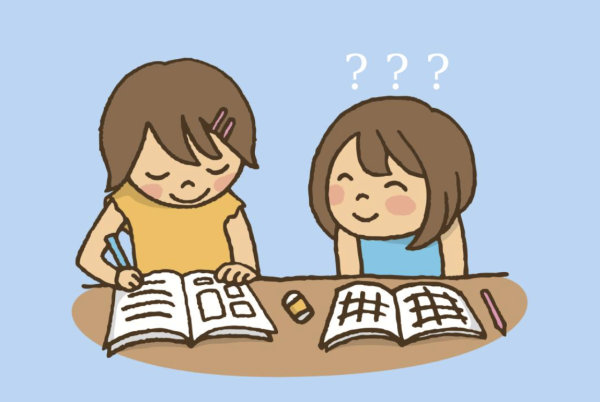Think About It
Is Social Media Really Good for Us? — Nilesh Kumar
In theory, social media provides many benefits that have essentially changed the world. From the click of a few buttons, we are able to connect with people halfway across the globe or chat with people we’ve never met. With digital technologies more prevalent than ever before, the internet and social media have digitized currency, education, and even the universe, with talks of a metaverse (digital universe) in place. Despite all of the positive implications of social media, however, it can be attributed to a direct cause of poor mental health, especially for teenagers, hence making it a flaw in our modern society.
Children and teenagers are more addicted to their phones than ever before. A recent study by GlobalWebIndex shows that people aged 16-24 tend to spend over three hours a day on social media platforms. This can be directly correlated to the impending mental health crisis amongst teens, with suicide rates higher than ever before. The social stigmas and standards created by a digitalized world create unrealistic expectations for every individual, as people spend time comparing themselves to celebrities. As a result, people don’t find love for themselves, and their mental health deteriorates.
In addition, the ease of access to speaking with anyone, through text or call, instigates arguments easier than ever before. When some sort of event takes place, the information spreads like wildfire through the use of social media, which can result in immediate and hurtful consequences from many people. Therefore, people must maintain a respectable social image, which oftentimes causes immense stress and is another contributor to poor mental health.
In all, social media is not always good for us, as it is directly correlated with the global mental health crisis.
Gender & Sexuality Labels — Tori Gomez
As the quarantine took the world by storm, the LGBTQ+ community grew immensely in numbers and support. With this came the exploration of sexualities and genders alike, deconstructing social norms as people came into closer connection with themselves while stuck at home. However, as the community takes steps to break down the concept of gender, I believe the topic of labels becomes more complex.
In the past, many sexuality labels had definitions that blurred gender and sex. Yet, with the community growing, sexuality labels have evolved with this, encompassing non-binary, transgender, and other gendered people in their definitions. Given the inherent complexity of attraction and sexuality and the ever-growing deconstruction and individuality of gender in our society, I believe these two things should not be labeled or defined by one another.
Human attraction in all forms is full of emotion and feelings; it’s complex and intrinsic, not something that should be defined by something as socially fabricated and subjective as language or labels. Gender is also far too abstract and dependent on the individual to be simplified as a monolith for the sake of definition. It is being deconstructed and socially refined, and even thrown away altogether by some. One cannot be attracted to the entirety of a gender label if that label means or looks or feels different for everyone, thus complicating things when trying to define sexualities by attraction to gender labels.
Labels themselves can, of course, be helpful to some, as they provide a sense of community and safety. They are a valid safe space for many. However, in the general scheme of things and in presumed social security, I have the feeling that allowing ourselves to abide by our own personal connections will be far more freeing. I personally think we should work on growing more comfortable with both the uncertainties and objective subjectivity that come with being human.
Being a Hater is Fun — Faith Crossan
In a perfect world, I am a happy, optimistic person who is full of love and zest for life. In a perfect world, everything would be so dreadfully dull. My friends would describe me as a pessimist with a minuscule soft spot for few things pleasant in the world. However, that list is minimal; it consists of my cat, my girlfriend, and the occasional coffee barista who makes my drink just right. I am basically the grinch minus the lack of dental hygiene. Essentially, hating things is fun, and I think it’s about time we addressed it.
Day to day, people live a lie, secretly despising things they see whenever they cross their path without ever announcing it! Instead, I express my disdain verbally, or if I am alone, with a look that says, “I would vaporize you if I could.” It’s a shame life isn’t a George Orwell novel. Ever since I’ve embraced my inner grinch, I feel so much happier! Which is ironic, to say the least. Outwardly despising things has made me a much more pleasant person to be around. Now, people say they value my honesty, boldness, and bravery for speaking out. I’m applauded for being a hater! For clarification, I am not intolerant. In fact, the thing I spend the most time hating on is people’s blatant ignorance. So no, I am not encouraging anyone to start being a menace to society. Instead, stop hiding that sometimes, you don’t like things! It’s human nature to have likes and dislikes, and I think it’s about time we normalize the “dislike” side of life.
Can Money Buy You Happiness? Yes, Yes it Can — Amelie Ryu
Many people ponder if money can buy happiness. In my opinion, yes, it very much can. We live in a world today where money is basically everything. If you have money, then you can do whatever you want. The list is endless. It is human nature to be happy when you do something you want to do. Say you like these shoes and buy them—you’re happy. Do you want to go to Paris? With money, you can go so that you will be happy. For the holidays you can go anywhere you want and be happy. You can live in a great home, get higher education, and the things you can do go on and on. When you get what you desire, you would, without a doubt, be happy.
If you have money, then you would have less stress. Many studies even show that you would have a lot more stress and worry if struggling financially. So many people living in poverty have so much stress thinking of all the bills they have due. However, if you have the money, you live a better lifestyle. Therefore, you would be happy. You will also be healthier; when you have less stress, the chances of having heart disease cancer decrease.
Additionally, once you find what makes you happy, you can do anything because the money wouldn’t be a problem. I am not necessarily saying that you will be extremely happy when you have the money. But once you know how to use the money, that’s where happiness comes in. Money can buy happiness.

Hey Royals! I am Nilesh Kumar, a senior and four-year writer for the sports section of The Ubiquity. I’m also the editor of the physical newspaper, meaning...

Hi, my name is Tori Gomez! I’m a senior at Quartz Hill High School, and this is my first and final year of Journalism. I can already say that I absolutely...

“To love the hibiscus, you must first love the monsoon” - Hala Alyan, “Thirty”
The past four years have felt like a monsoon. And now, as the clouds...

Hello, my name is Amelie Ryu. I am a senior and it is my third year on The Ubiquity staff. Some little things about me are that I love traveling, art,...





